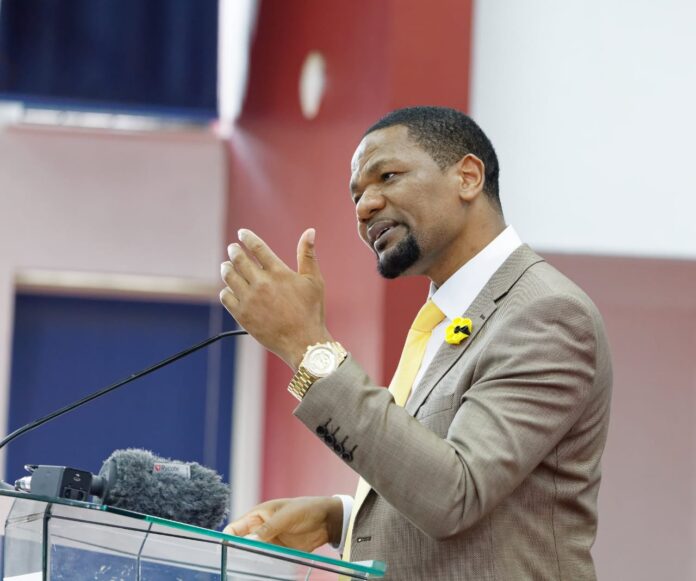Sometimes it baffles me when I see people complain 24/7 without proffering solutions. They complain about everything. They blame everyone except themselves. What many forget to know is that we live in a world as it is not as it should be. Hence every positive action from all of us can help move the needle forward. We blame the government all the time as if the government is a building or a house. Government is people who come from the very societies we come from and their attitudes will not change with the complaints we have been making for over 60 years.
My point is simple: there is nothing wrong with anyone pointing out a problem. But as you do so, make sure you play your part and leverage what is working to make the case and show what you have done. We are not strangers in this continent, and we all know that complaining and blame game most of the time is not helpful. If you doubt it, take up your phone and log into Facebook and Twitter etc. and see what is happening there. I see this every day and it’s always someone to do it but for ourselves and the circus of blame game continues.
Become a solution provider yourself: Government alone is not a repository of all solutions. If we all do what we can and become innovative, we can make a positive difference. The best policy solutions are not always from the government alone. Policy is not always established through top-down approaches. Effective policy is established more through bottom-up approaches. Where pockets of success stories from ground actions by ordinary citizen are leveraged to generate a groundswell of empirical data and knowledge that feeds back to inform and influence policy prioritization from a more practical and implementable position.
For example, The African continent needs to create no less than 13 million jobs each year, for a growing youthful population currently at 60%, and with up to 60% of these youth being unemployed. To this end, nearly every African country has a jobs strategy, an employment policy, a youth jobs creation policy etc. Implementation of these jobs policies needs enablers in form of incentives that come from across different ministries. For example, the finance ministry may need to put in place fiscal incentives to activate investment in certain sectors that can engage the most youth in job creation. Energy, transport ministries may need to put in place certain infrastructural incentives, to activate optimal job-creating investments. And by this, we have diverse sectorial policies being synchronized and harmonized for implementation towards a shared priority of implementing a jobs strategy. But the question is, how do we know which sectors/sub-sectors to incentivize to have the maximum impact on job creation? This is where empirical data from a groundswell of success stories that have demonstrated their potential for engaging the youth in enterprise and jobs become a critical input.
And for this, an example of how these groundswells of empirical success data can inform harmonized policy incentives for jobs is in the agriculture sector, Africa’s engine sector of development. But empirical data from Nigeria, Cameroon, Uganda, among other countries shows that convening agro-value chain actors in local cooperatives, to “co-operate around” accessing a solar dryer solution to cut their postharvest losses (PHLs), instead of convening around savings only, will result in them cutting their PHLs, increasing shelf-life, while achieving statutory food safety, health and quality standards benchmarks of their produce through preventing the growth of aflatoxin linked to cancer disease burden. With these savings, they can then put youth to work to start fabricating these accessible solar dryers and hence create enterprise opportunities for youth.
These empirical results then provide empirical evidence that can be taken up by diverse sectoral ministries, to inform prioritization of their policies towards the shared bottom-line economic aim of creating jobs while meeting their respective sector-specific priorities. This empirical data will inform them such that they prioritize their fiscal incentives towards this area – e.g. integrate waiver of taxes in imported spare parts needed to make solar dryers. Education policy needs to offer bursaries to needy, bright students. They can now leverage this data to offer bursaries to youth to get training and skills in fabricating solar dryers and deploying these to power agro-value addition to ensure their bursaries go to where youth can get jobs for themselves while solving development challenges.
If we do not leverage what we do to create this data at the ground level who will? Everyone has a role to play and sometimes what we complain about needs us to trigger it from a solution’s perspective. We must leverage what we have to create more. That’s the effort we now must usher ourselves into rather than the easy blame games and complaining attitudes that have for so long derailed a continent.
The views expressed here are those of the author and do not necessarily represent those of the institution with which he is affiliated.

